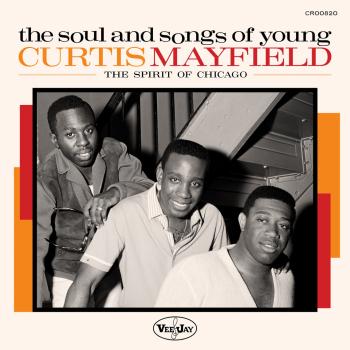
Azerbaijan, the home of saxophonist Rain Sultanov, is known in the western part of the world above all for its not inconsiderable oil reserves, its government dominated by an authoritarian-oriented president, which now and then makes the headlines because of corruption cases, as well as the conflict with its neighbor Armenia over the autonomous region of Nagorno-Karabakh, which has been smoldering for years and is sometimes hotly contested. The Republic of Azerbaijan, which borders on the Caspian Sea and which parted from the Soviet Union in 1991, is not known for its distinct jazz scene. In terms of music, the country made a name for itself in 2012 when the Eurovision Song Contest was held in its capital Baku. As is well known, this pop event has nothing to do with jazz, and certainly nothing to do with the fact that Azerbaijan has produced a saxophonist with an international reputation. Trained as a clarinetist and awarded with prizes, Rain Sultanov founded the jazz band Syndicate in 1997, with which he recorded his first album Last Moment.
For his current album Influence, the saxophonist was able to enlist the Swedish bassist Nils Ölmedal, who has recorded albums with the Hakan Goodhe Trio, the Lisa Ullen Quartet and the group Stoner, and his compatriot Isfar Sarabski on piano, who won the piano competition at the 43rd Montreux Festival and has been and still is successful with his own trio. In a strongly introverted manner reminiscent of Jan Garbarek, Sultanov pays homage to his musical role models on Influence. He dedicates "I know that you'll never come back" to Miles Davis. He pays tribute to Jaco Pastorius with "Morning Flight", a title by the US bassist, in which the current Sultanov Trio is expanded to a quartet through the inclusion of guitarist Dagobert Böhm, and Dexter Gordon receives special recognition with "Solaris". However, there can be no question of a mere copy of the role models. Rather, their pieces serve as inspiration for independent design. Sultanov says: "I have not tried to play music similar to them. I have not even tried to play music they would have liked. I simply named each of my compositions in honor of one of my idols. Each of them gave me new insights, a new love, new emotions. And even though I found my way to my music after years, I still don't stop listening to them and appeal to their thoughts."
The other titles of Influence, which come from the saxophonist himself, fit seamlessly into the inward-looking concept of this album, which is settled on the soft side of jazz and is convincingly represented by all members of the Sultanov Trio.
With his latest album, Rain Sultanov again proves to be a brilliant export of a kind of jazz that has its roots in the traditional music of his homeland Azerbaijan, which goes back to the rather introverted folk music of the bards.
Rain Sultanov, soprano saxphone
Isfar Sarabski, piano
Nils Ölmedal, double bass








